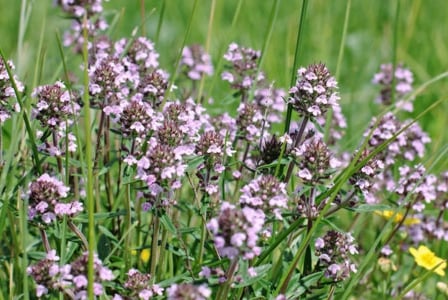
New research shows promise for treating facial acne with an herbal tincture of thyme. Lab studies showed better outcomes than prescription cremes at treating acne.
It’s never a good time to have acne—just ask your teenage son who’s woken up with a beamer on his chin the morning of a big date. But thyme—the herb—shows promise as a natural treatment for the common skin condition.
Scientists from the Leeds Metropolitan University in Great Britain presented their research this week at the Society for General Microbiology’s Spring Conference in Dublin. Their research, using lab samples of the bacterium that causes acne, demonstrated that herbal tinctures of thyme could be more effective than prescription cremes at treating acne.
Over-the-counter acne solutions abound, most of them containing benzoyl peroxide, salicylic acid, or sulphur as their active ingredient, all of which can be especially tough on sensitive skin. Other, more invasive solutions involve pharmaceutical interventions that can carry other, more serious side effects.
The Leeds researchers believe thyme may offer a more gentle option that provides effective antibacterial action against the Propionibacterium acnes—the bacterium that causes acne by infecting skin pores and forming spots, which range from white heads through to puss-filled cysts.
Other natural treatments
Tea tree (Melaleuca alternifolia)
- powerful antiseptic and antibacterial properties to help clear blemishes
- effective at relieving acne
Willow bark (Salix alba)
- natural source of salicylic acid, a common ingredient in over-the-counter blemish-fighting products
- helps remove dead skin tissue, debris, and toxins; unclogs pores; and provides a mild drying effect that can benefit those with oily skin
Lavender (Lavandula angustifolia)
- contains astringent and antibacterial properties to help fight problem skin conditions such as blemishes
- helps reduce redness and irritation and calm skin
Rosewood (Aniba rosaeodora)
- may help reduce sebum production, stimulate new skin cell growth, and balance skin
- traditionally used as both an antiseptic and an astringent
Camomile (Matricaria recutita)
- anti-inflammatory properties help reduce dryness, redness, sensitivity, and irritation
- soothing effect helps diminish skin discomfort



